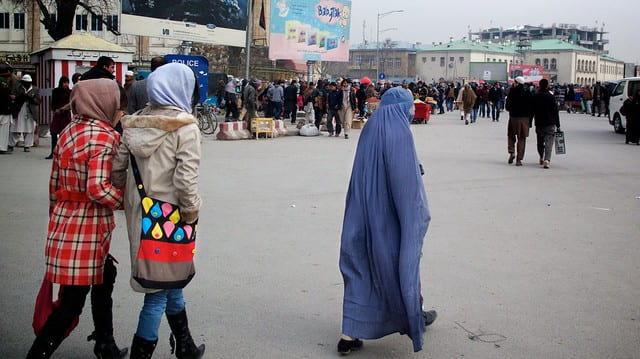Playwright and internationally recognized scholar of Afghanistan, Nushin Arbabzadah, explores the experience of living abroad and then returning home in her new play about Afghan/U.S. cultural crossings, Dust Allergy, to premiere at OSU on Oct. 7th. She was inspired by a the stories Afghan women journalists of Sahar Speaks, a project to promote their careers internationally and bring their much-needed perspectives into the mainstream. In a recent interview with Arts and Sciences, Arbabzadah shared that when she “listened to the stories of Afghan women who returned (to Afghanistan) after spending more than a decade in the West” she realized how much her own experiences abroad had changed her.
Please join us on October 7th as “Dust Allergy” is staged for the first time. It is a tender story of compassion, even pulling one’s heartstrings with the sub-plot of a three legged puppy. Many issues are raised, such as child poverty, women’s rights, and imperialism. Nineteen-year-old Arzo, the protagonist, recently returned from the U.S. and is living again with her mother in their family home in Kabul. Arzo’s experiences in the U.S. cause her to observe facets of Afghan culture from the perspective of outsider. We learn about these observations via a conversation with her mother about their current living situation and her need to find paid work.
Arzo’s reason for traveling to the U.S. was to learn English with the goal of obtaining work in Kabul paid in U.S. Dollars. The economic disparities related to language and culture reveal a colonizer/colonized relationship between the two countries, and the complicated situation that creates for Afghans – needing to cross cultural boundaries in order to obtain financial and physical security. The one-act play unfolds by way of the conversation between mother and daughter and is rich with metaphor, symbolism, and many direct and indirect references to Afghan cultural traditions. This is an excellent story to “unpack” with regard to the challenges of navigating cultural difference, the meaning of cultural relativism, and the phenomenon of reverse culture shock. Arzo’s personal drama of re-entry into Afghan culture also reveals many layers of the evolving Afghan story with regard to class, gender, modernity, and globalization.
Arbabzadah’s aforementioned work is a part of Sahar Speaks, two plays commissioned by Palindrome Productions of London and adapted for the stage from stories by Afghan women, these two one-act plays–Parwana: They Bear All the Pain by Alia Bano and Dust Allergy by Nushin Arbabzadah–offer a rare and revealing look into Afghan women’s lives. On October 3rd Arbabzadah will deliver a lecture on the history of Afghan theatre, which in her words, “may go to sleep but never dies in Afghanistan.”

Image of girls on Afghan street. Kabul street Jan 2014 by Michael Foley via Flickr CC2.0 https://www.flickr.com/photos/michaelfoleyphotography/12053283655
These performances are part of On the Front Lines, a series of events centered on Afghanistan, organized by Lesley Ferris, Art and Humanities Distinguished Professor of Theatre and sponsored by a Global Arts + Humanities Discovery Theme Creation Grant. Co-sponsored by The Department of History, the Department of Near Eastern Languages and Cultures, the Middle East Studies Center, the Wexner Center for the Arts, and the Middle Eastern and Islamic Studies Service and the Lawrence and Lee Theatre Institute at the University Library.